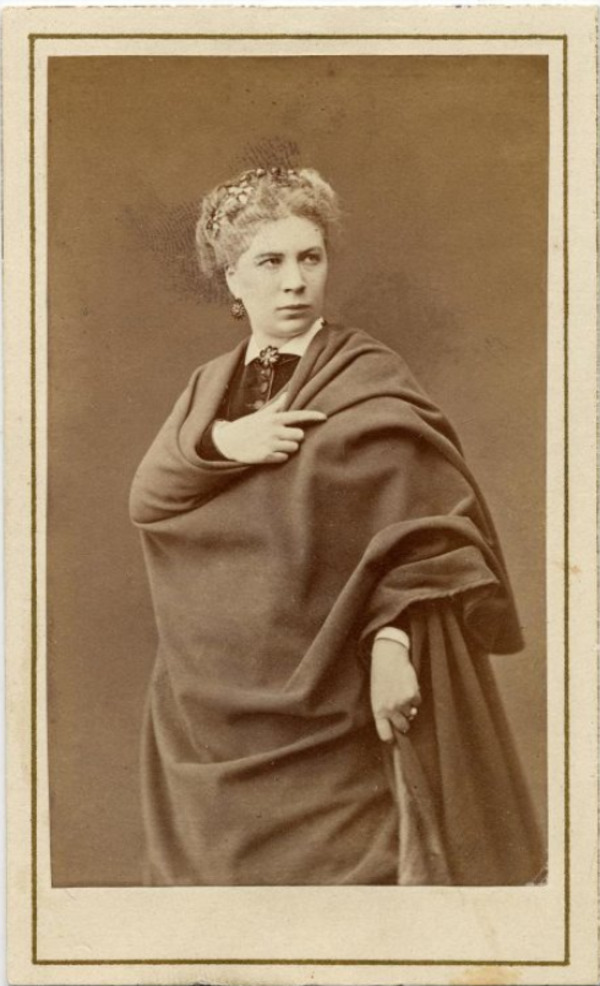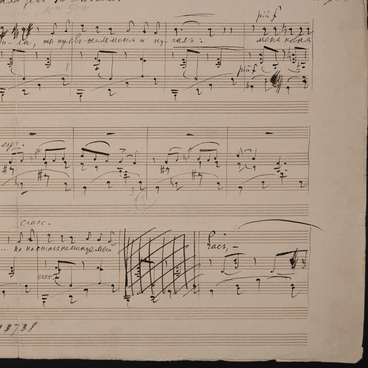Désirée Artôt was an opera singer, niece of the Belgian violinist and composer Joseph Artôt. Pyotr Ilyich Tchaikovsky described her vocal timbre as follows:
Photo portrait of Désirée Artôt
Young, quite sharp, more suitable for oboe than flute, her voice breathed indescribable charm, was all bliss and passion.
He also noted the singer’s dramatic talent.
Artôt came to Russia in 1868, having already gained wide European fame. With great success, she performed in concerts of the Moscow and St. Petersburg Italian Opera.
Tchaikovsky’s acquaintance with Désirée Artôt took place in the spring of 1868, by autumn it grew into admiration and mutual affection. The composer not only highly appreciated Artôt’s vocals, but also intended to marry her. Tchaikovsky dedicated to her his Romance for piano, Op. 5. At the beginning of 1869, he was preparing for their engagement.
However, the composer’s friends, especially Nikolay Rubinstein, opposed the marriage. The situation was resolved in an unexpected way: Désirée Artôt went on tour and a month later married a singer from her company, the Spanish baritone Mariano Padilla y Ramos. Tchaikovsky suffered from this wound for a long time.
20 years after the first meeting and acquaintance, Tchaikovsky saw the singer again during his tour of Germany. Warm meetings and Artôt’s assistance greatly improved the composer’s stay in Berlin. He wrote to his brother:In Berlin, my lifestyle is the same as in Saint Petersburg, i.e. I spend the whole day calling on people, which is the most terrible thing for me. The only consolation is Artôt, who is invited everywhere with me and whom I love so dearly.
Désirée Artôt asked
Tchaikovsky to compose a romance for her and an opera based on the libretto of
the famous tenor Joseph Capoul “The Black Prince”. Tchaikovsky wrote 6 French
Songs, Op.65 based on the original texts of the French poets Turquety, Collin
and Blanchecotte: two Serenades, “Deception”, “It doesn’t matter that the
winter puts out the lights…”, “Tears”, “Grace” (“It hides in your grace: a sweet
enchantment”). He refused to work on the opera.



